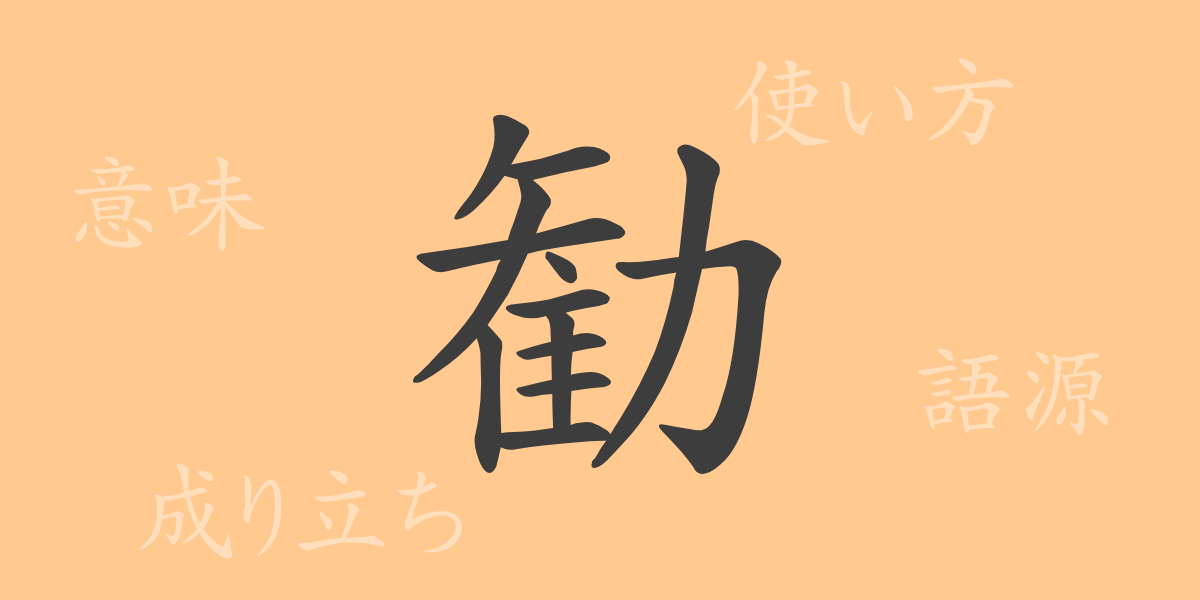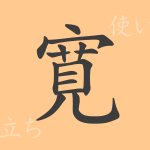The Japanese language contains thousands of 漢字, each with its own unique history and meaning. One commonly used 常用漢字, or regular-use kanji, is “勧(Kan)” In this article, we will delve deeply into the origins, meaning, usage, pronunciation, number of strokes, and radical of “勧,” as well as explore idioms, phrases, and proverbs that include this character. Let’s step into the world of “勧,” a symbol of the beauty and complexity of the Japanese language.
The Origin (Etymology) of 勧
The kanji “勧” originates from ancient China, with its etymology stemming from the concept of “exerting force to guide someone.” Initially, it combined the elements of hand and force, representing the act of persuading someone with an added effort. Although its shape has evolved over time, the fundamental meaning of “勧” has been preserved from antiquity to the present day.
The Meaning and Usage of 勧
“勧” means “to recommend” or “the act of recommending,” and is used when suggesting something or inviting others to take action. It is often employed when recommending something or an action that is considered good to someone else. Additionally, it is used to emphasize the proactive nature of the recommendation.
Pronunciation, Stroke Count, and Radical of 勧
The kanji “勧” has several pronunciations, which vary depending on the context.
- Pronunciation: The on’yomi (Chinese reading) is “Kan,” and the kun’yomi (Japanese reading) is “Susu-meru.”
- Stroke Count: “勧” is a 12-stroke kanji.
- Radical: The radical of “勧” is “力 (chikara).”
Idioms, Phrases, and Proverbs Using 勧 and Their Meanings
There are several idioms, phrases, and proverbs that include “勧,” such as:
- 勧誘 (Kanyuu)): Inviting someone to do something.
- 勧告 (Kankoku): Formally advising or recommending a course of action.
- 勧善懲悪 (Kanzenchouaku): Encouraging good and punishing evil.
- 勧進 (Kanjin): Collecting donations for the establishment or repair of temples.
These expressions make use of the meaning of “勧,” which is “to recommend,” and are widely used in the Japanese language.
Conclusion on 勧
The kanji “勧” is a character whose form and meaning have been passed down through the ages. The culture of recommending what is considered good to one another plays a significant role in Japanese society. Idioms, phrases, and proverbs that include “勧” reflect the depth of meaning this kanji holds and are incredibly interesting aspects of learning Japanese. Through this exploration, we hope you have gained an appreciation for the charm of “勧” and its uses, enriching your Japanese language expressions.

























